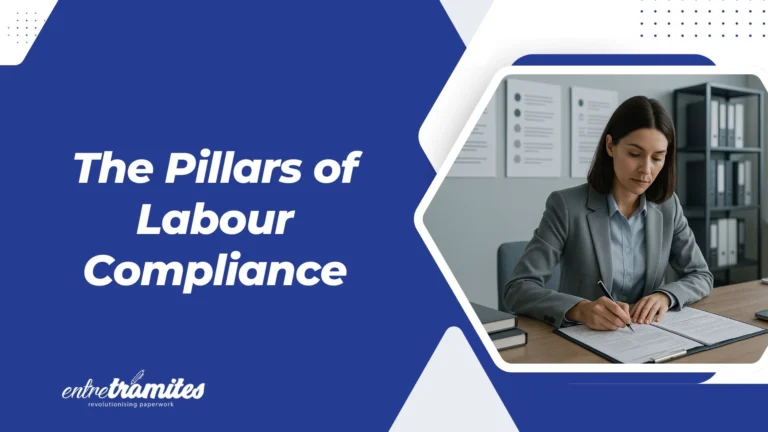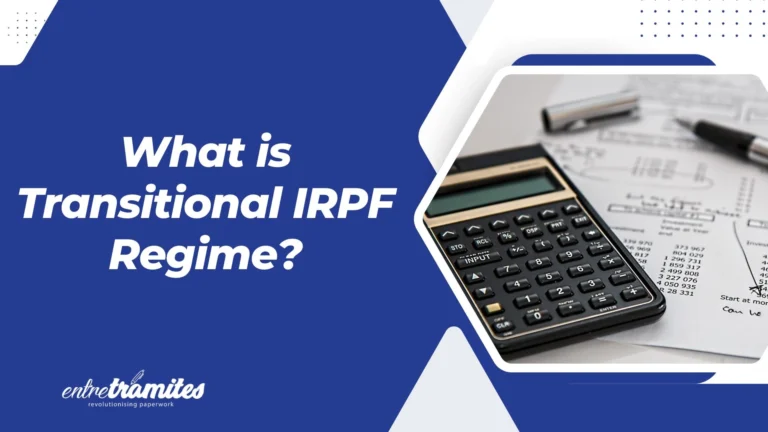In an increasingly regulated business environment, the pillars of labour compliance have become fundamental to guaranteeing ethical and transparent management that is aligned with current regulations. It’s not just about adhering to labour law, but about implementing a true culture of compliance that protects the company, its employees, and its reputation.
This article offers a practical and detailed guide to understanding and implementing the main pillars of labour compliance, reinforcing a commitment to responsible and sustainable corporate conduct.
What is Labour Compliance?
Labour compliance refers to the set of policies, procedures, and controls that a company implements to ensure compliance with labour regulations, both internally and externally. Its objective is to prevent, detect, and correct infractions related to labour rights, equality, health, and safety in the workplace, among other aspects.
Implementing a good compliance program is not only a measure of legal protection but also a competitive advantage and a sign of ethical commitment to employees, investors, and society.
The Main Pillars of Labour Compliance
1. A Labour Code of Conduct A clear, updated, and accessible code of conduct is the foundation of any labour compliance program. This document should reflect corporate values, internal rules, and precisely establish what behaviours are acceptable and unacceptable in the workplace.
2. A Confidential Whistleblowing Channel Having a whistleblowing channel is mandatory since the entry into force of Law 2/2023, of February 20, in Spanish Ley 2/2023, de 20 de febrero, which regulates the protection of persons who report on regulatory infractions and the fight against corruption. This channel allows employees to anonymously and securely report possible non-compliance or irregularities. It must be managed impartially, guaranteeing confidentiality, non-retaliation, and a timely response to the reports received.
The Spanish Tax Agency also has an internal information channel for reporting conduct by its own personnel that is contrary to the legal system. This channel does not handle tax complaints or service issues; those are subject to specific procedures. Whistleblowers have the right to protection measures established by Law 2/2023, except in certain cases, such as rumours or public information.
3. Continuous Compliance Training Regular training on labour compliance ensures that all levels of the organisation understand their obligations and responsibilities. This training must be adapted to different employee profiles and include topics such as occupational risk prevention, harassment, equality, work-life balance, and the use of digital tools.
4. Internal and External Audits Conducting regular labour audits allows for the detection of deficiencies, non-compliance, or areas for improvement. These audits can cover topics such as contracts, time registration, equal pay, or occupational risk prevention. The results should be analysed by the compliance officer to propose corrective actions and ensure continuous improvement.
5. Clear and Updated Internal Policies Internal policies complement the code of conduct and cover specific operational aspects: remote work, digital disconnection, harassment prevention, permits, and work-life balance, among others. These policies must be aligned with current regulations and communicated effectively.
The Role of the Labour Compliance Officer
The compliance officer or labour compliance manager:
- Identifies and evaluates labour risks.
- Promotes an ethical culture within the company.
- Manages the whistleblowing channel.
- Coordinates audits and training sessions.
- Advises departments on regulatory matters.
This role requires legal training and experience in labour law and risk prevention, as well as a degree of independence within the organisational structure.
Benefits of Implementing Labour Compliance
- Reduced Sanctions: Minimises the risk of fines or litigation due to non-compliance.
- Improved Work Environment: Strengthens trust and a sense of fairness among employees.
- Enhanced Corporate Reputation: Positions the company as responsible and transparent.
- International Compliance: Facilitates relationships with foreign investors and clients.
Frequently Asked Questions (FAQs)
Is a whistleblowing channel mandatory for small companies?
According to Law 2/2023, companies with more than 50 employees are required to have an internal information system. For smaller companies, it is considered a good management practice.
How often should internal audits be conducted?
It is ideal to perform at least one annual review, although in high-risk sectors, quarterly audits are recommended.
Does labour compliance replace the Human Resources department?
No, compliance complements Human Resources by providing a regulatory and preventive perspective that strengthens corporate decisions.We offer labor, tax, and accounting advisory services tailored to your needs.
If you require personalized assistance to manage your labor obligations, at Entre Trámites we offer management and tax advisory services for freelancers and SMEs. You can contact us through this contact form for us to call you, or if you prefer, you can schedule a free consultation or write to us on WhatsApp.





